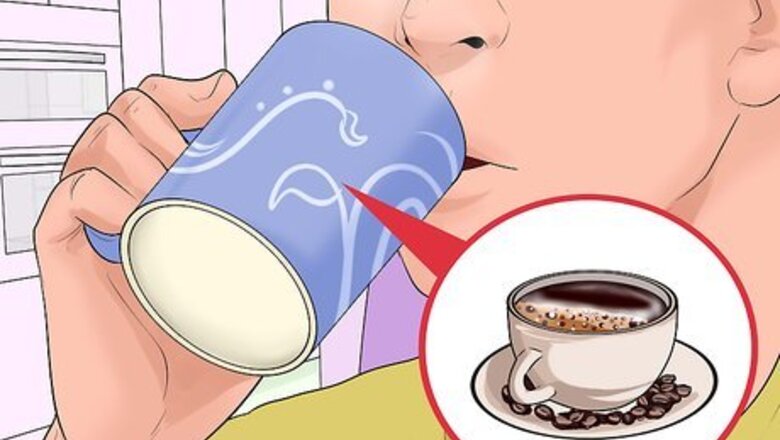
views
X
Research source
The positive effects of caffeine for ADHD still do not equal the results of prescribed medications. Like medications, caffeine has some side effects, although there are less with caffeine. If you are seeking a home remedy for ADHD or if you control ADHD with diet, try using caffeine to keep the ADHD under control. Speak with your physician before starting a new treatment regimen.
Assessing the Pros of Using Caffeine for ADHD
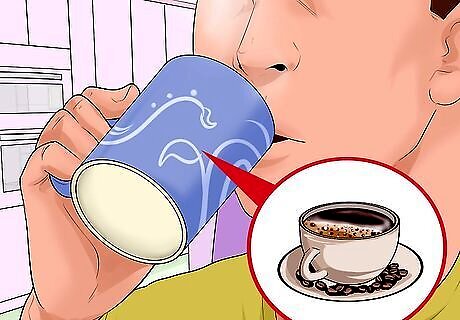
Stimulate away. Caffeine is a stimulant, just like many of the prescription medications those with ADHD use to tame their symptoms. Because of caffeine's effect on the brain, when someone consumes it, the levels of a key brain chemical (dopamine) are increased. Someone with ADHD who consumes caffeine is better able to process information, and will feel more calm and focused. Excess intake may still cause the stimulant side effects however, which may include anxiety. The effectiveness of caffeine for ADHD depends on the dosage. Moderate doses between 200-300 mg can lead to increased energy, enhanced concentration, and boost emotional well-being. High doses, however, of greater than 400 mg can cause you to feel jittery and nervousness.
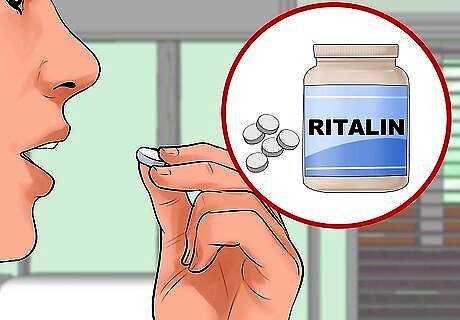
Decrease the brain's blood flow. No, this one is not mis-categorized. Yes, it does say decrease the brain's blood flow. Apparently in those with ADHD, this is a good thing. This is the exact effect ADHD medications like Ritalin have. The blood flow affects how well the person processes information and pays attention.
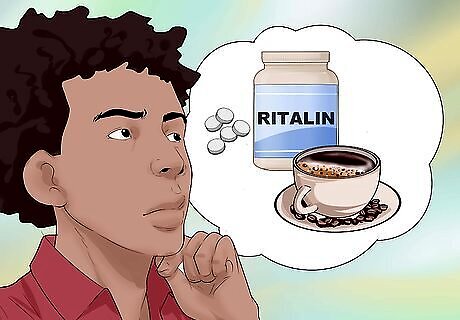
Combine caffeine with a methylphenidate medication. Such a regimen can produce a high level of success at controlling ADHD. Studies have shown that when used in conjunction with each other, at low doses, the two treatments compliment each other very well. In combination with higher levels of caffeine, however, the prescription proved to be the equivalent of no medication at all.
Assessing the Cons of Using Caffeine for ADHD
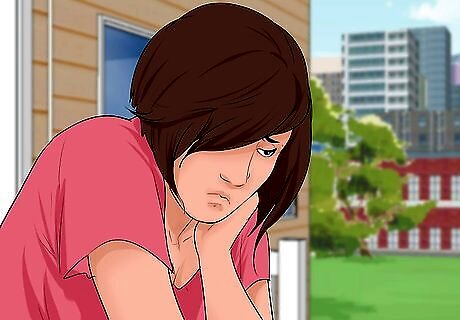
Expect inconsistent results. In research studies, results of caffeine as a medication for ADHD have not provided as consistent results as prescribed medications. At times, using caffeine had the same effect as no medication or treatment at all.
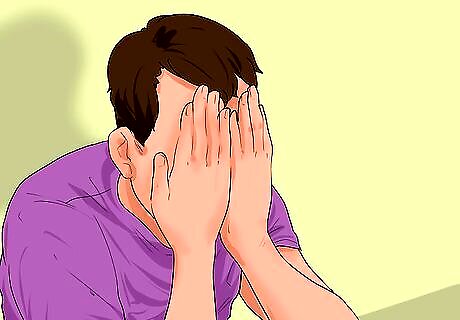
Prepare for side effects. Though caffeine greatly reduced hyperactive behavior in children when administered prior to academic testing, the change in behavior was not without side effects. Restlessness, heart palpitations, insomnia, irritability and increased anxiety are a few.
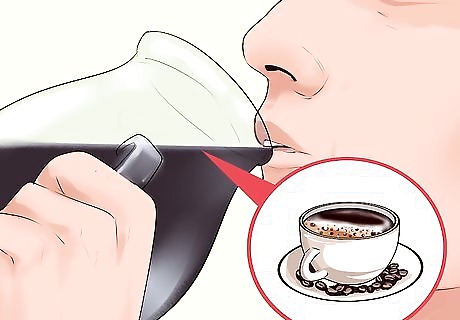
Risk addiction. Studies of long term use of caffeine show that it is quite addictive. People who are ADHD and use caffeine as a treatment risk becoming addicted. In the event one decides to reduce intake or stop using caffeine, there are risks. Headaches are one of the withdrawal symptoms. However, those who intake a lot of caffeine run the risk of having the shakes and the increased possibility of a heart attack. Remember that large amounts of caffeine have been proven to be ineffective. Limited quantities (between 200 and 300 mg) work best at helping you to manage ADHD.
Considering Other Treatment Options
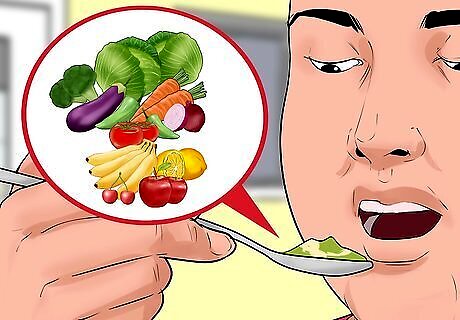
Eat a healthy balanced diet. Enjoy a diet that promotes consumption of whole foods like fruits, vegetables and lean protein. Some researchers suggest removing foods that have been processed and may have harmful substances added like artificial sweeteners, preservatives, and allergens like eggs, milk, and grains.
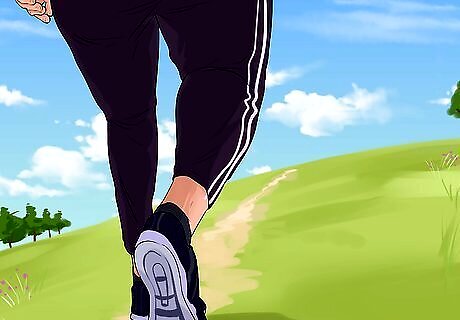
Get exercise. One teacher recognized how periods of in-school activity reduced ADHD symptoms in her students. As a result, a study was conducted showing that regular physical activity - as little as a half hour each day - improved cognitive functioning, mood, and focus. Students also saw a decrease in the severity of ADHD symptoms. If you or your child have ADHD, try getting regular exercise, in virtually any form, to see if it helps. Even if the effects are minimal, people who work out regularly still report feeling better about themselves and healthier.
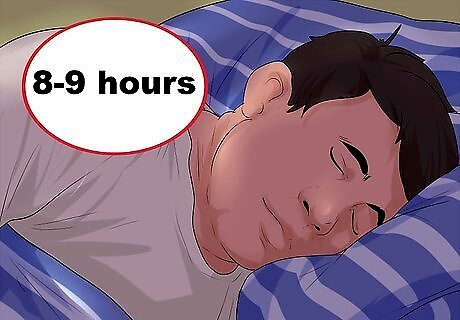
Improve your sleep habits. Getting 8 to 9 hours of sleep each night for adults and even more for children is essential to mood stability, attention, and focus. One study showed that children with ADHD had higher rates of daytime sleepiness.Therefore, getting adequate sleep at night can help you or your child stay awake while at work or school. The best tactics to improve sleep quantity and quality lie in developing a regular and consistent sleep pattern. Create a relaxing bedroom environment, and move all other activities elsewhere. Avoid caffeine or alcohol in the evenings for better sleep, too.
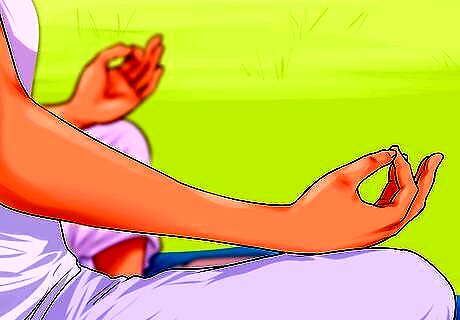
Practice yoga or meditation. Both yoga and meditation promote relaxation and improve moods in people who engage in these activities. These practices place an emphasis on your breath and focusing on sensations within your body, rather than environmental stimuli. Try both or either to see if one helps an ADHD sufferer learn discipline and stress management.
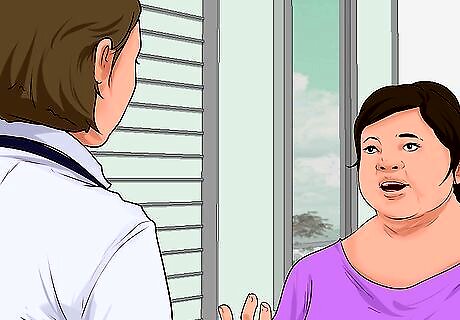
See a professional for behavioral interventions. In addition to lifestyle changes, you can consult with a psychologist for non-pharmacological interventions that help alleviate ADHD symptoms. Which interventions your mental health provider uses will depend largely on your unique medical/psychiatric history and symptom patterns. Plus, adults and children generally require different interventions that match their developmental level.
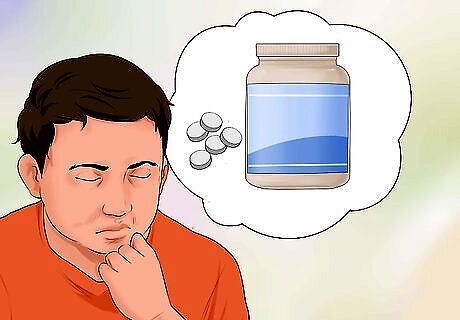
Don't overlook medications for ADHD. Many people shy away from pharmacological treatments of ADHD. However, they have been proven to alleviate symptoms in 85% of cases, particularly for severe manifestations of the disorder. In some cases, lifestyle changes may be sufficient at helping you manage your ADHD. However, if these tactics do not improve your symptoms, see your doctor about a stimulant or non-stimulant medication that may suit your needs.















Comments
0 comment